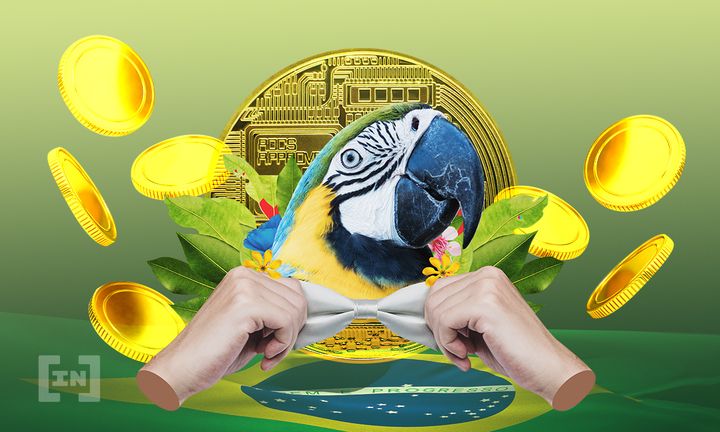According to data provided by Brazil’s central bank, residents have purchased $4.27B worth of cryptocurrencies in 2021. In the tough economic climate that Brazil has experienced in the wake of the coronavirus pandemic, many citizens have turned to digital assets as a type of hedge against inflation, hyperinflation, and deflation cycles.
Notable months in crypto purchases totaled $579M in April, $756M in May, $695M in June, and $583M in July. Altogether, the purchases came to $4.27B as bitcoin surged back over $60,000 in October 2021. The uptake was driven largely by the unbanked and younger demographic, as well as speculation that Brazil could adopt bitcoin as legal tender like its South American sister nation, El Salvador.
Bruno Serra, the central bank’s monetary policy director, claims that Brazilians hold $50B in digital assets, which is $34B higher than their total value of U.S. stock holdings.
Brazil’s position on crypto regulation
Brazil has not been a country that has taken a hard stance against cryptocurrency; there are individuals responsible for drafting legislation who are debating a bill that seeks to regulate the sector, rather than ban it. The country’s progressive approach to cryptocurrencies includes listings of crypto-based exchange-traded funds (ETFs) on Brazilian exchanges. A bitcoin ETF was listed on the Sao Paulo stock exchange, and an Ethereum ETF was launched by QR Capital.
Serra has said that Brazil’s monetary authority has a controlled foreign exchange market that makes it aware of crypto-related transactions. There are foreign exchange contracts for all such transactions. The transfer of ownership of crypto assets between residents and non-residents began to be reported by the central bank in the “goods” section of the balance of the payments in August 2021. Crypto assets are considered non-financial and produced assets, in keeping with the International Monetary Fund’s recommended methodology.
Regulation serves to root out perpetrators
It’s not all sunshine and roses, however. Regulation has had to deal with the criminal elements that promise unrealistic returns on crypto investments, and on money laundering activities. In early October 2021, Brazil’s Câmara dos Deputados passed a bill to turn the screws on the crime of money laundering using crypto.
Penalties for laundering money include a surrender of 66.6% of funds, as well as prison time for a minimum of four years. Recently, $28M was seized in a crypto-Ponzi scheme, following an investigation by the Region of Rio Federal Police, and five arrests were made. In early August, over 30 search and seizure warrants were served.
